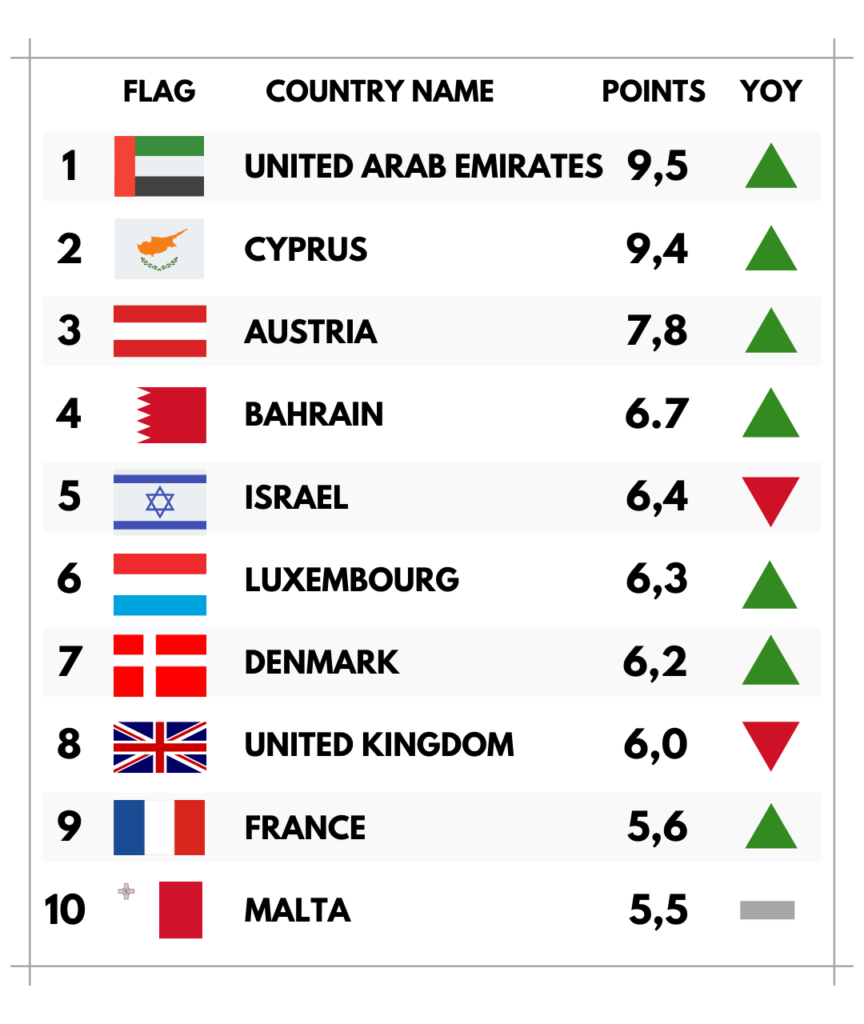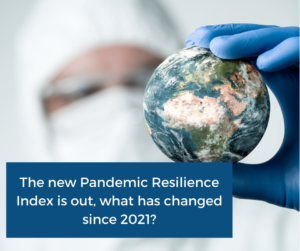Pandemic Resilience Index 2022
Executive Summary
The Pandemic Resilience Index ranks 40 countries regarding their health system’s resilience to the COVID-19 and similar crises. The Index looks at the following factors: vaccination approval, its drive, and time lags that have put brakes on it, critical care bed capacity, and mass testing. The Index was originally published in April 2021. Here we present the updated results, using the data as of 30 November 2021.
Introduction
When the first case of COVID-19 was detected in China in December 2019, the world did not set off alarm bells right away. Along with the World Health Organisation (WHO)’s late reporting of the situation in Wuhan, the prevailing global unpreparedness for a crisis of such extensive scope and, more generally, shock drove the initial slow response. In particular, that concerns healthcare systems whose weaknesses have been dramatically exposed by COVID-19.
The rollout of vaccine programmes worldwide gave us hope that the pandemic might be over once everyone got their two jabs. As time kept passing by and new strains emerged, it became clear that pandemics might be part of our reality now. Although mild, Omicron has been keeping European and international health systems under extreme pressure. The rollout of boosters has become a priority. However, as was the case with the original vaccines, many countries failed to act fast enough, thereby prolonging the COVID crisis. The UAE was the pioneer of the booster rollout. Countries such as New Zealand, Ukraine, Australia, Spain and Canada took 5 months longer to get it up and running. Compared to the initial results, the change in the ranking is largely due to the booster vaccine rollout delays.
Since March 2021, most countries have increased their testing, with only Sweden and Luxembourg experiencing a negative change. An average number of tests in Greece, for example, went up by 500 percent, compared to the original Pandemic Resilience Index. In Germany, for contrast, the increase of 6 percent seems negligible.
TOP 10 COUNTRIES

Research note: We strive to improve the quality of the underlying data of this index and aim to refine its methodology moving forward. The period of data ranges between 2018 and 2021. In terms of the number of ICUs, we ask the readers to acknowledge difficulties collecting this particular dataset and, to keep in mind, that there might be a minor margin of error. However, this is unlikely to meaningfully affect the final results. Regarding the testing, we calculated the average of daily tests per thousand based on the data provided by Our World in Data.
See the Pandemic Resilience Index 2021
AUTHORS:
MEDIA HITS
UAE tops COVID resilience rankings
- January 31, 2022
- Pandemic Resilience Index, Recent Media





